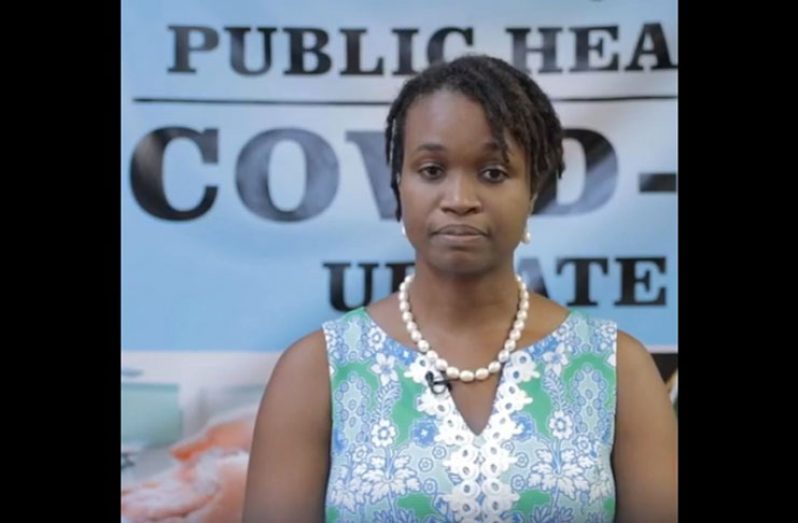PERSONS who recover from the Novel Coronavirus (COVID-19) disease are no longer infectious, meaning they cannot spread the disease, but they can, however, be re-infected, said Director of Primary Health Care Services, Dr. Ertenisa Hamilton.
This new development was reported worldwide, on Tuesday, and according to a New York Post article, nearly 300 recovered coronavirus patients in South Korea, who tested positive a second time hadn’t infected others. These preliminary findings were released on Monday by the Korean Centers for Disease Control and Prevention. This new development boots the notion that those infected with coronavirus develop immunity to the disease.
The report from the New York Post said Korean officials monitored 285 recovered patients, who again tested positive and found that none of the 790 people they came into contact with were infected with coronavirus. “We currently have 46 persons who have recovered.
Recovered cases refer to persons who were affected with the disease and who now have been cleared with two negative results 24 hours apart and with no signs and symptoms of the virus. These individuals can no longer infect others; however they can be re-infected if they do not take precautions,” said Dr. Hamilton in a virtual COVID-19 update, on Tuesday.
Despite the new development, the fact remains that Guyana continues to record a consistent increase in the number of COVID-19 cases, with the latest statistics showing that one new case was recorded after 51 tests were done, in the past 24 hours.
The total number of persons tested to date is 1,269 with the total number of negative cases being 1,144. There are 69 active cases of which three are being treated in the COVID-19 Intensive Care Unit (ICU) and 66 in institutional isolation. Additionally, the country has lost 10 persons to the disease.
As the fight continues, Dr. Hamilton reminded Guyanese that frontline workers, including staff of the National Public Health Reference Laboratory are working “under duress”, either testing persons for the disease or battling to save the lives of those stricken with COVID-19.
“We cannot find enough words to express our praise and appreciation, so I appeal to you that even as we applaud the untiring efforts of these faithful workers, we think of our actions that are contributing to the rise in our numbers. Unless we change our behaviours, not only will our numbers increase, but our return to normalcy, our fellowship, our social gatherings, our hang on the seawall will be unnecessarily long and stressful,” said the doctor.
Health authorities continue to work towards strengthening the healthcare system to respond to COVID-19 on a long-term basis, and the potential and existing activities are part of the plan to have a comprehensive COVID-19 health network, whereby patients across the country’s 10 administrative regions will be able to access these services.
Region Four (Demerara-Mahaica) remains the epicentre of the disease, and there are a number of communities outside of Georgetown which have recorded cases.
Among communities on the East Coast Demerara (ECD) where cases have been recorded are: Atlantic Gardens, Friendship, Golden Grove, Good Hope, Lusignan, Plaisance, and Strathspey. Among communities on the East Bank Demerara (EBD) where there were cases are: Diamond, Grove, Land of Canaan, Providence, and Timehri.
Measures can be continuously implemented, but it is up to the individuals, that is the average Guyanese, to adhere to those measures and think seriously about flattening the curve (reducing the spread). The disease remains a serious issue, not just in Guyana, but globally.
And, according to global statistics, there are over 4.6 million cases of COVID-19, with over 311,000 deaths. And with no approved treatment or cure, there is no assurance that persons will survive after contracting the disease. In the absence of approved medications, governments and authorities across the world have employed a number of preventive measures to contain the spread of the disease.



.jpg)








